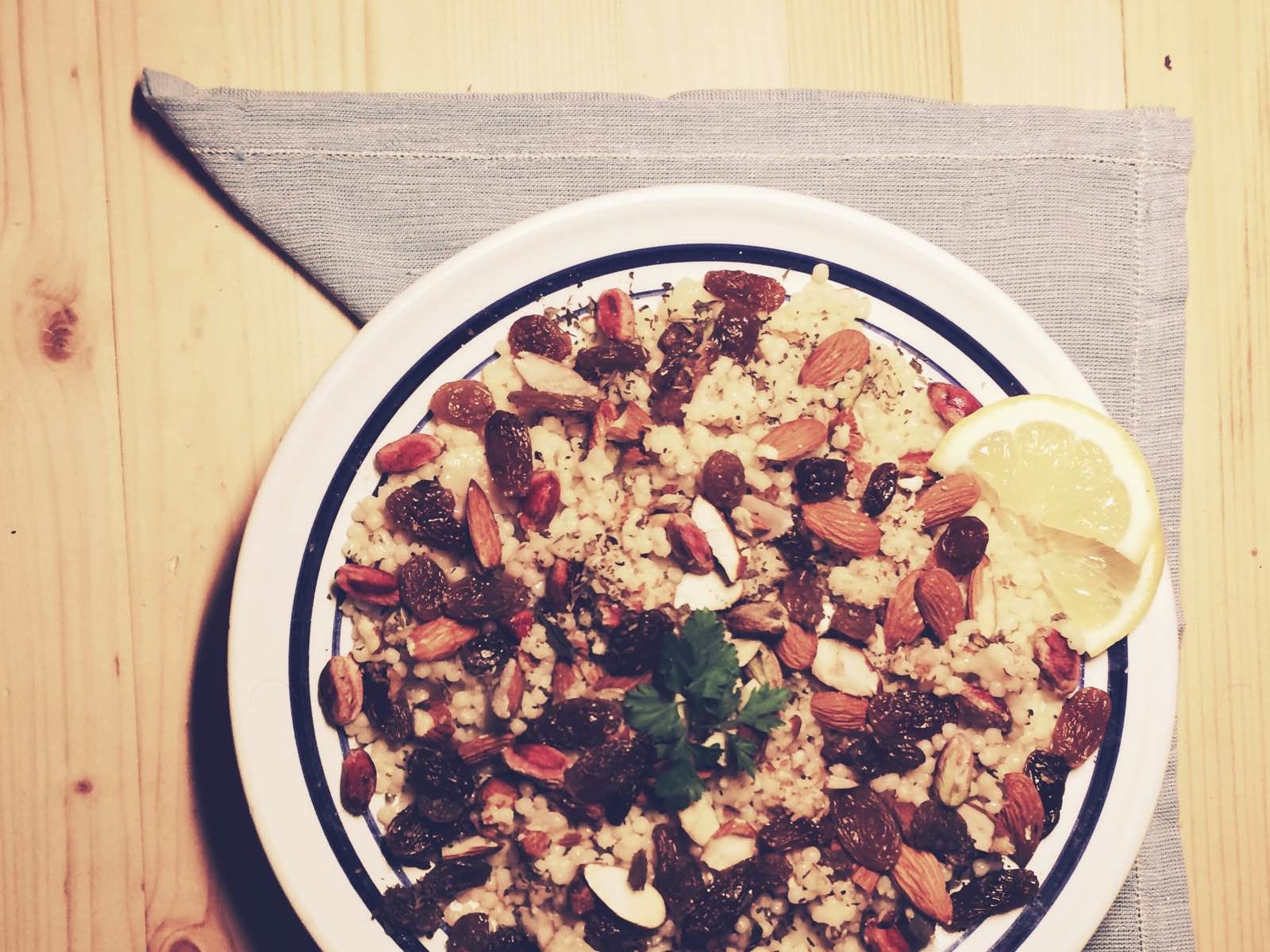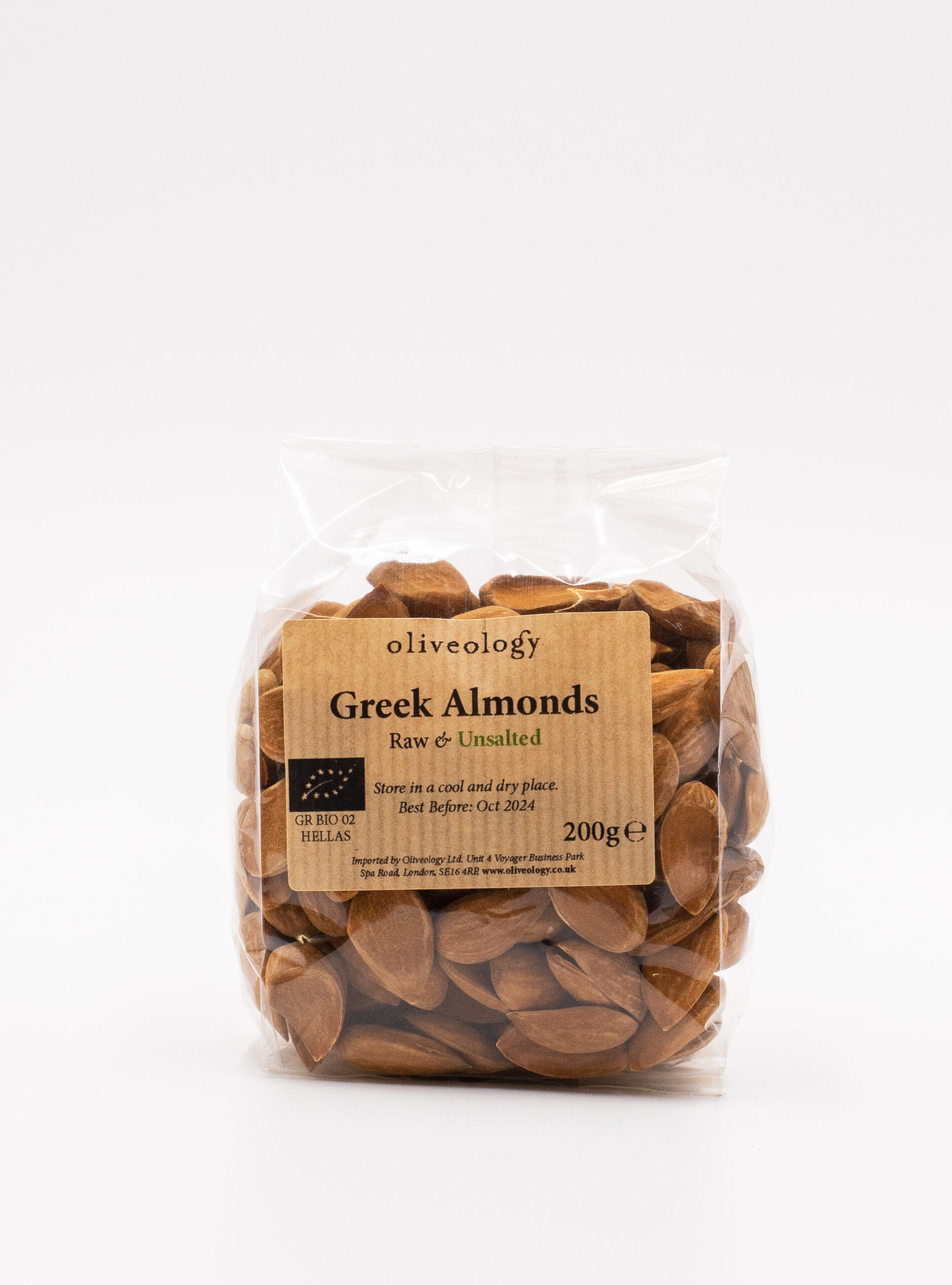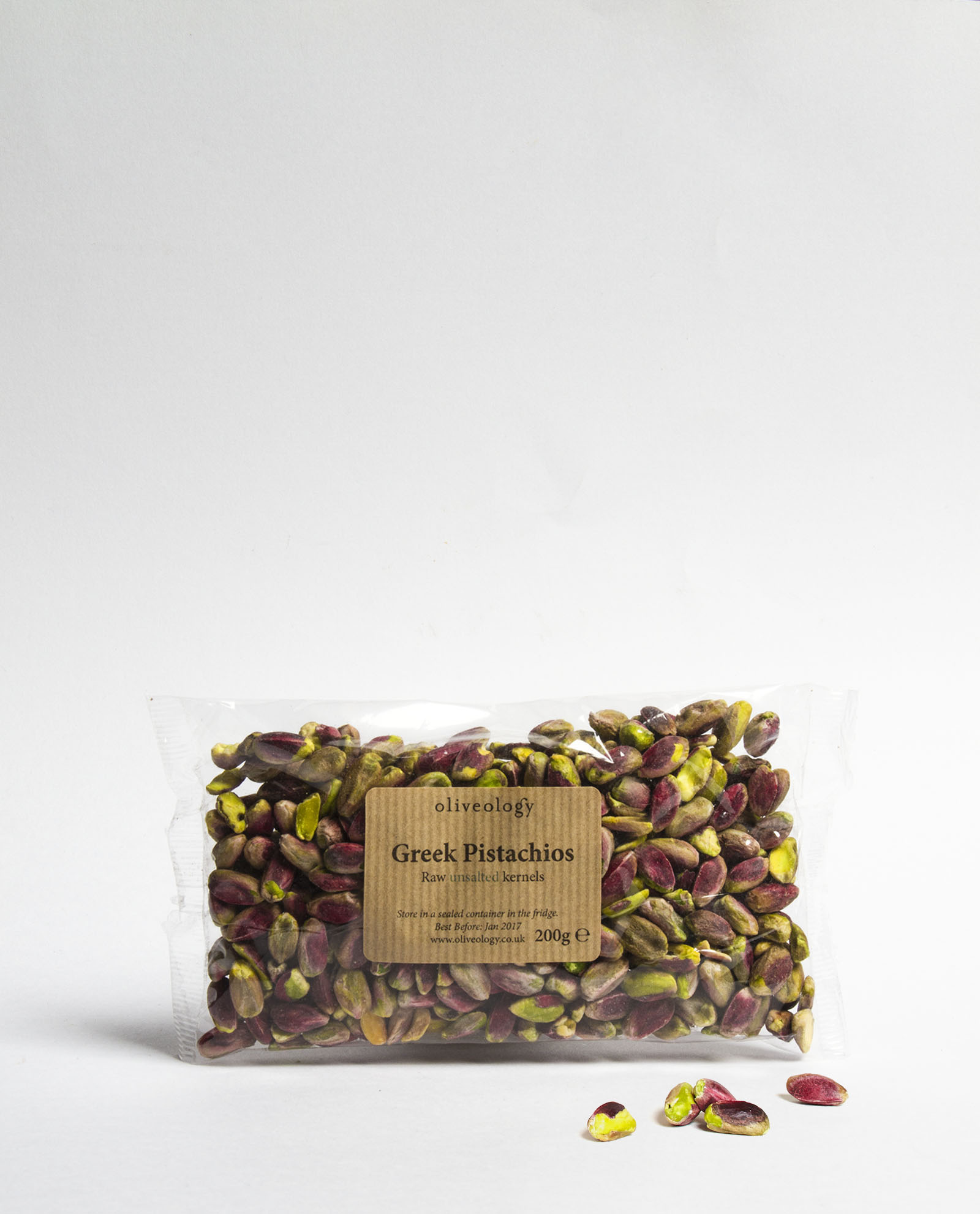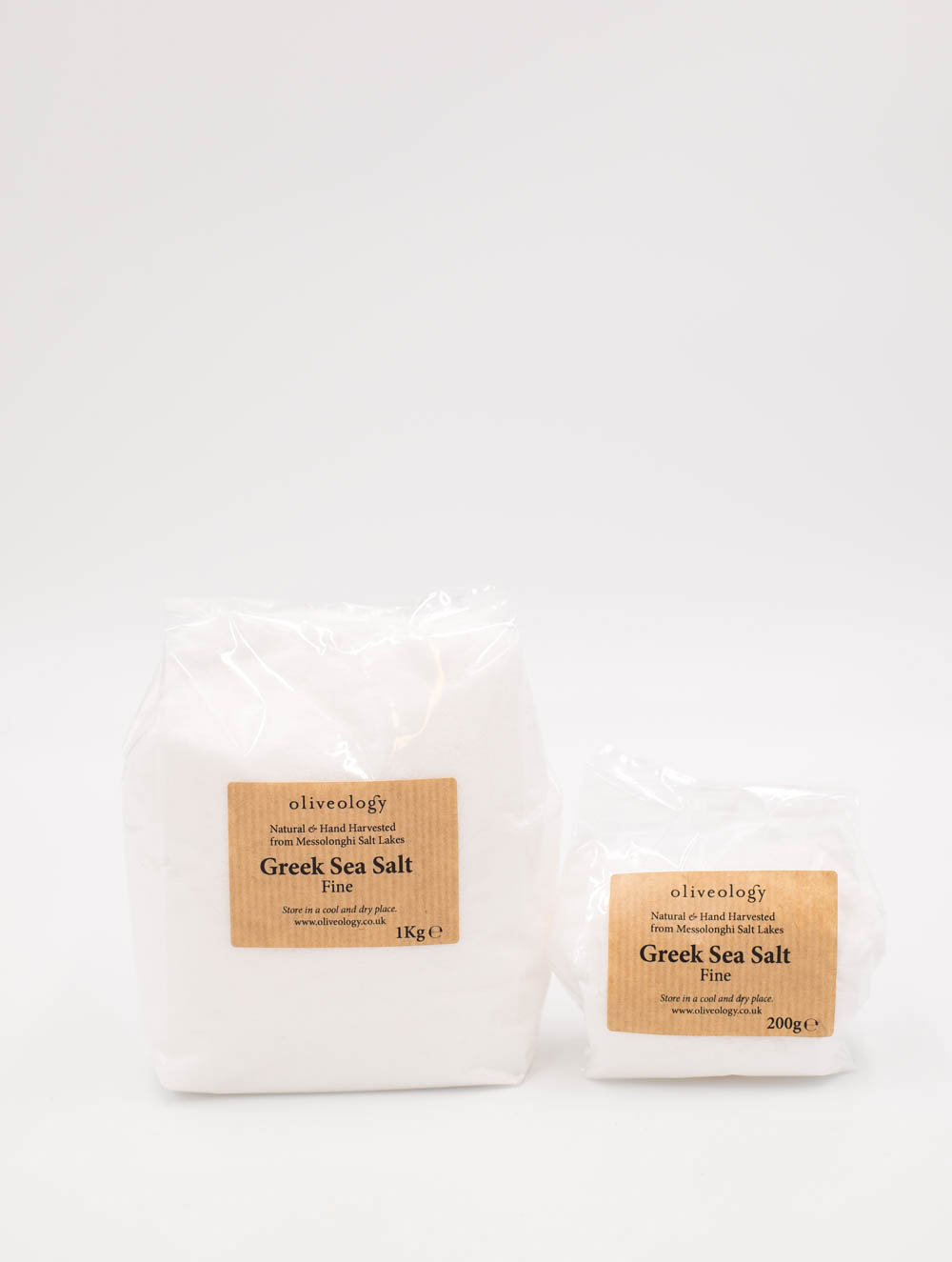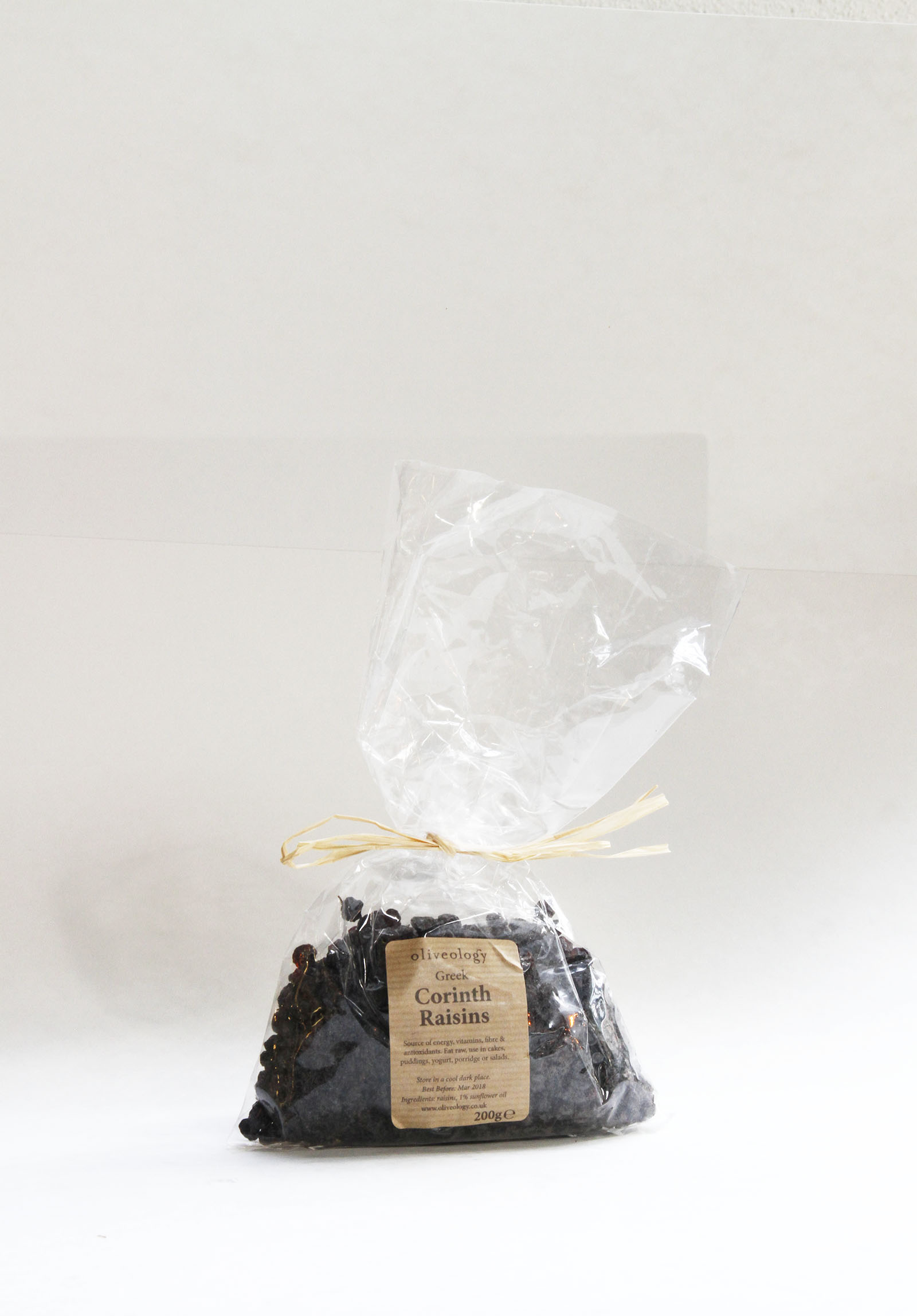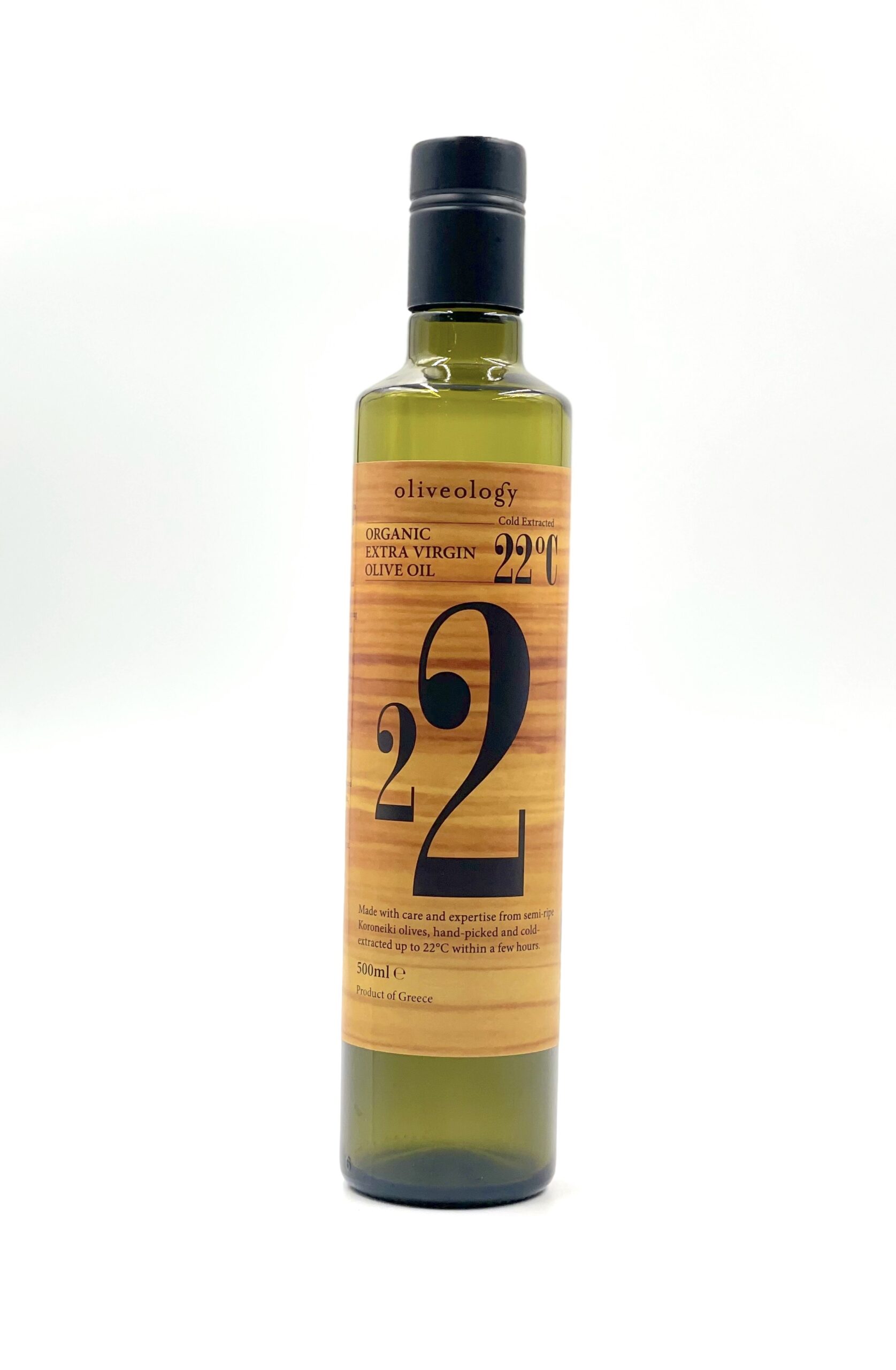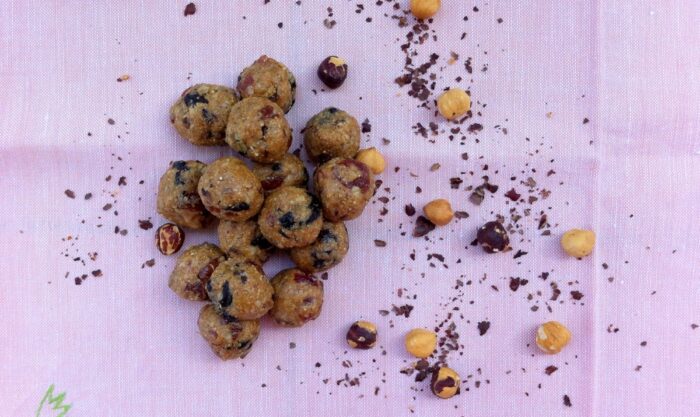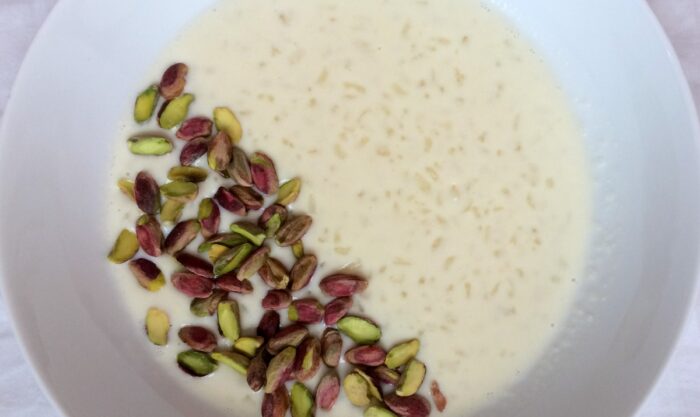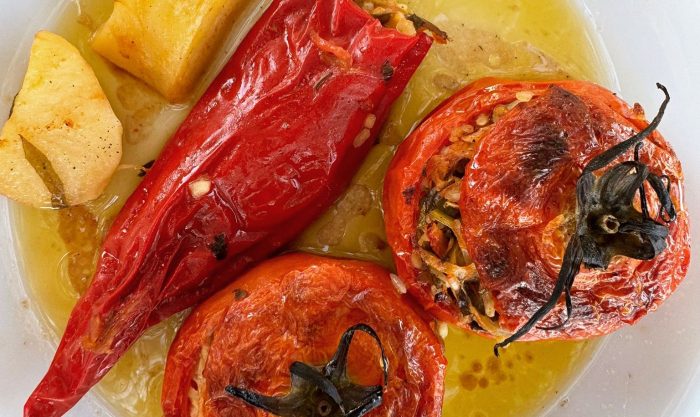Light but filling, this nutty and fruity vegetarian dish takes just 20 minutes to prepare – and leftovers will do for packed lunch. It can also work as a side dish, for meat dishes or added in a leafy salad.
Ingredients (for 6 persons):
• 500g couscous (whole wheat is recommended)
• 300ml chicken/ vegetable stock
• 120g olive oil (we recommend using 22ÆC)
• 80g Corinth raisins (soaked for 20 mins in 50ml black rum or cognac or water, if you wish)
• 75g almonds, finely chopped
• 125g raw pistachio kernels
• Zest from 2 lemons and juice from 1
• ½ bunch of fresh spearmint/ mint/ sage
• Sea salt and freshly ground pepper
Firstly, mix the couscous in a bowl, boil the stock and pour it over the couscous while it is hot, then cover and leave to stand for 5 mins. You can cover it with some cling film or even a plate for those 5 mins until it absorbs all the water. Fluff up couscous with a couple of forks and drizzle the extra virgin olive oil. Add the raisins, the almond flakes, the Aegina pistachios, the lemon juice as well as the zest and the spearmint. Stir through, season and serve. Enjoy!
Tip: If you want your nuts to have a richer flavour, you can toast them for a couple of minutes on a pan or a skillet until they are golden brown. Read some facts while your couscous is standing This whole-grain food, commonly found in Middle Eastern cuisine is a berber (meaning well rolled, rounded) traditional North African dish. A staple food in North Africa, it is traditionally served with a meat or vegetable stew. Researchers Greg Noakes and Laidia Chouat Noakes argue that this granular type of pasta is a powerful communal food. As it is time consuming and laborious, it is a group effort through each stage of preparation and consumption. In addition, it is usually made in big quantities to feed the extended family and often the neighbours, as well. The widely sold in the Western world couscous consists of many tiny granules made from durum wheat or semolina that have been presteamed and dried.
Couscous is an excellent source of protein, dietary fibre, essential vitamins and trace minerals. When made with whole-wheat flour, the amount of fibre is increased and its nutritional value is slightly boosted. It has 3.6 g of protein for every 100 g and contains a 1% fat to calorie ratio. One of the most important components of couscous is selenium, a hard to find trace-mineral. This food actually contains about 66% of the recommended daily dose. Couscous contains a sufficient source of potassium. This granular type of pasta also provides you with precious vitamins like thiamin, niacin, riboflavin, B6, folate and pantothenic acid as well as manganese, phosphorus, copper and magnesium minerals.
* Inspired by a Christophoros Peskias’ recipe at Pasta: Recipes from Greece and worldwide, 2015, Athens, Gastronomos- Kathimerini, 8th volume, p.144. By Lida Papamatthaiaki
